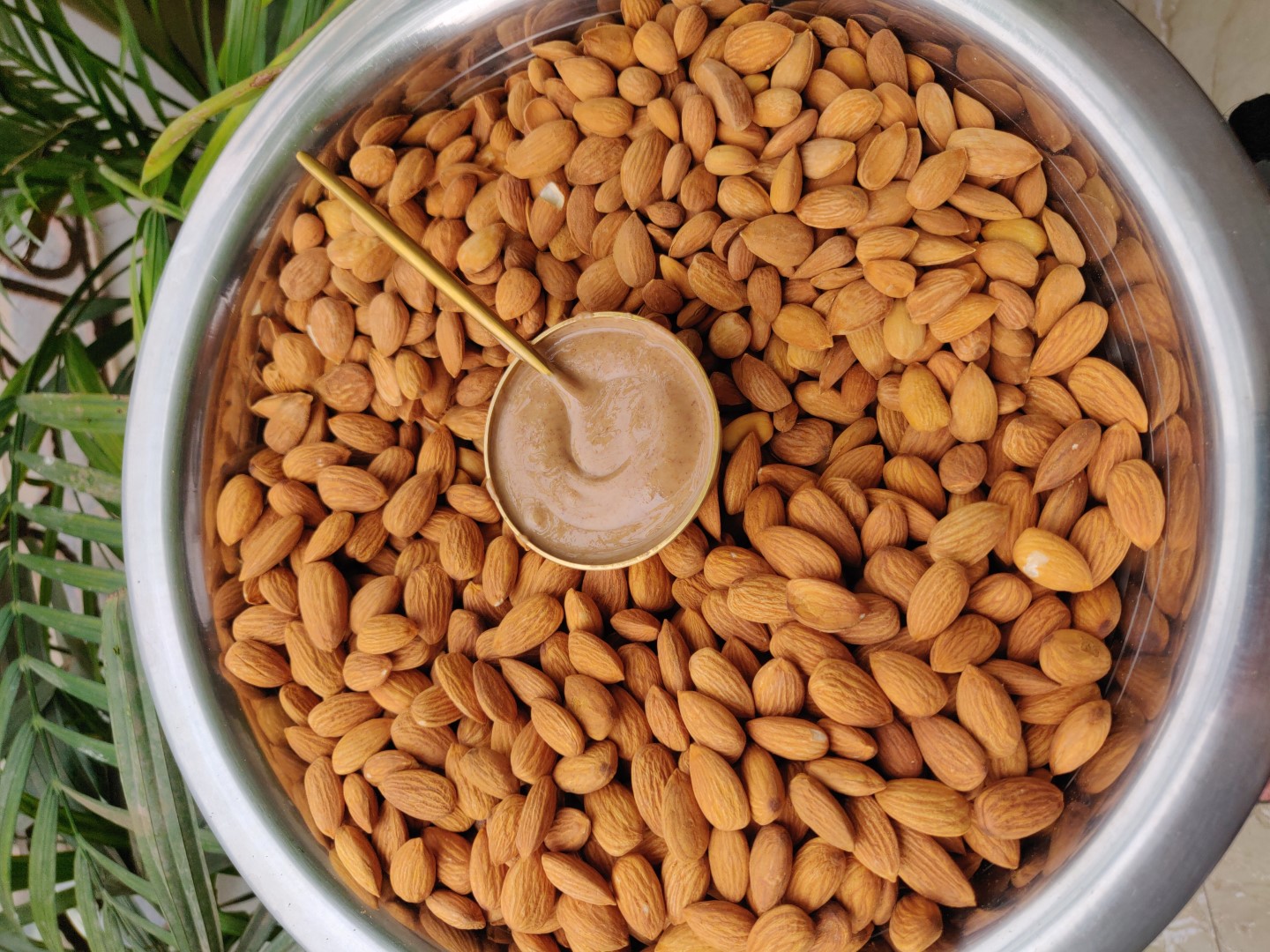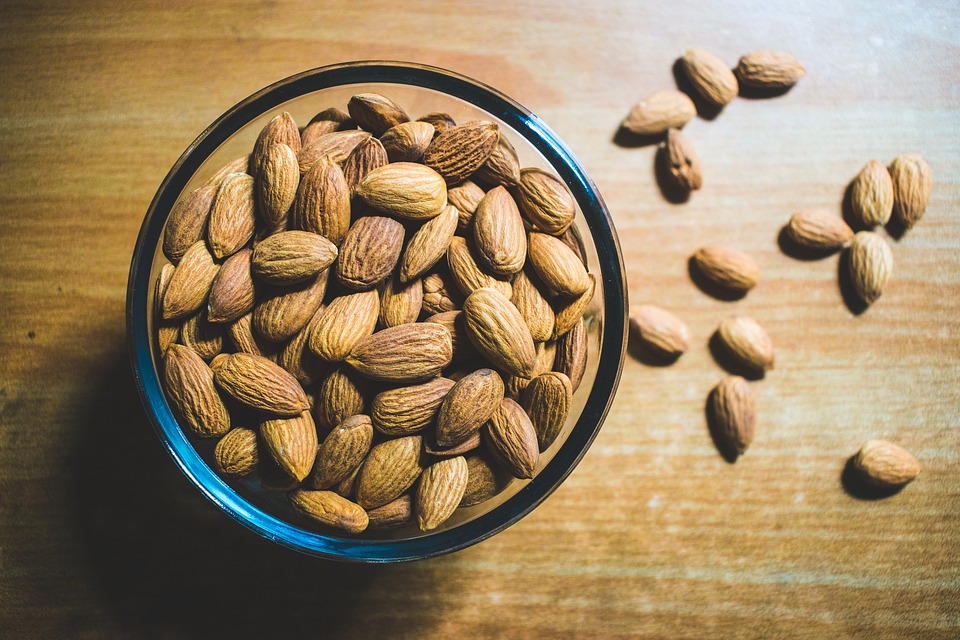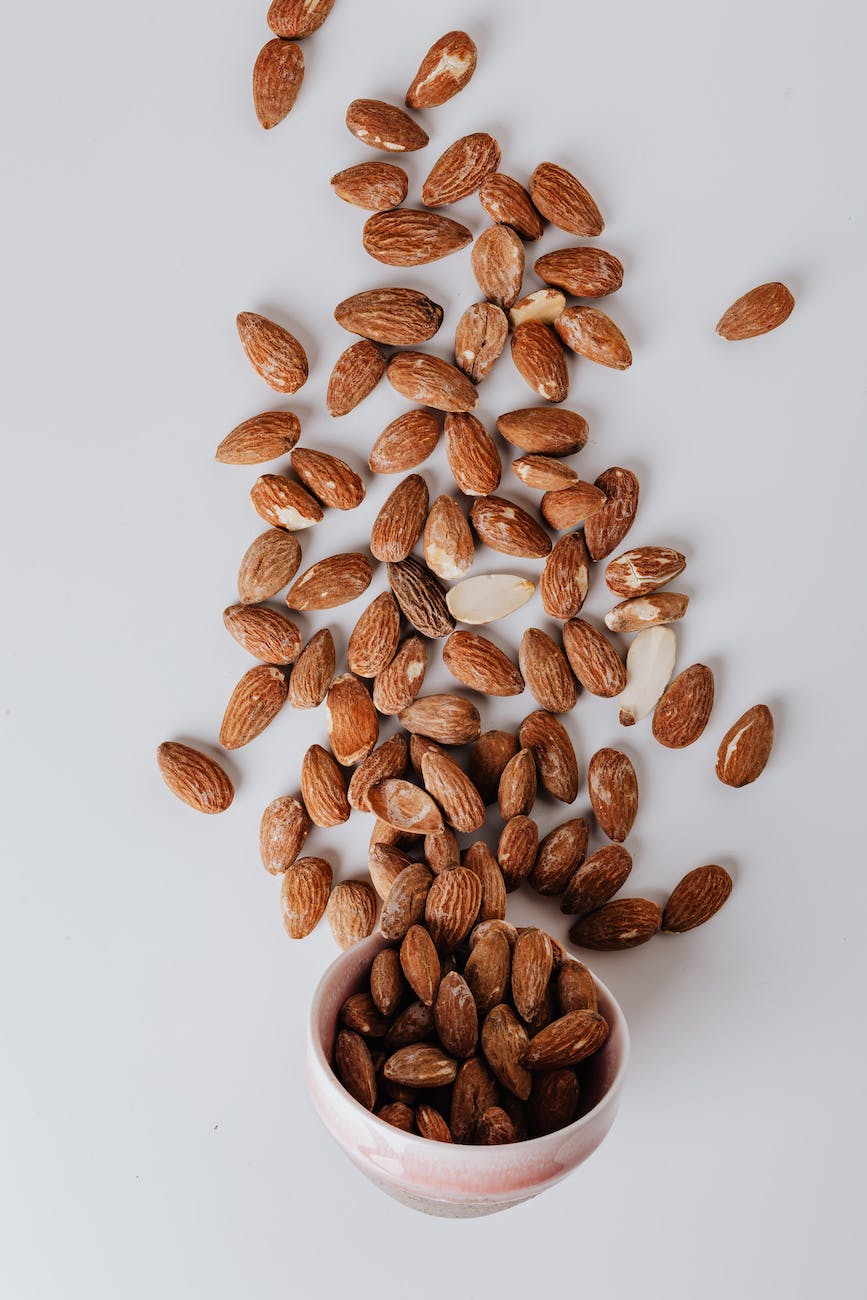
Did you know that the humble almond is a powerhouse of nutrients that can transform your health? 🤔 Packed with fiber, protein, healthy fats, vitamins, and minerals, almonds are a superfood that you need in your daily diet. In this comprehensive guide, we’ll explore the scientifically-backed benefits of daily almond consumption, and how you can easily incorporate them into your meals. So, let’s get cracking! 🚀
🍽️ Nutritional Profile of Almonds:
Almonds are more than just a tasty snack. They’re a nutritional powerhouse! 💪 Each serving of almonds provides:
- Fiber: Great for digestion and keeping you full.
- Protein: Essential for building and repairing tissues.
- Healthy Fats: Monounsaturated fats in almonds are heart-healthy.
- Vitamin E: A powerful antioxidant that protects your cells from damage.
- Magnesium: Important for many bodily functions, including regulating muscle and nerve function, blood sugar levels, and blood pressure.
- Calcium: Necessary for strong bones and teeth.
But that’s not all! Almonds also contain a good amount of phosphorus, potassium, and zinc. They truly are a nutrient-dense snack! 🎯
💖 Health Benefits of Eating Almonds Daily:
1. Boost Your Heart Health ❤️: Almonds are rich in monounsaturated fats, the same type of health-promoting fats found in olive oil, which have been associated with reduced risk of heart disease. In fact, a study titled “Effects of Daily Almond Consumption on Cardiometabolic Risk and Abdominal Adiposity in Healthy Adults With Elevated LDL-Cholesterol: A Randomized Controlled Trial” found that daily almond consumption may be a simple dietary strategy to prevent the onset of heart-related diseases. 🏥
2. Manage Your Weight ⚖️: Struggling with hunger pangs when trying to lose weight? Almonds to the rescue! A study titled “Appetitive, dietary and health effects of almonds consumed with meals or as snacks: a randomized, controlled trial” found that almonds reduced hunger and desire to eat, making them a perfect snack for weight management. 🥊 For more insights on how almonds can aid in weight loss, check out this Masala Monk blog post.
3. Control Blood Sugar Levels 🩸: Almonds have a low glycemic index, meaning they’re less likely to spike your blood sugar levels. Plus, they’re rich in magnesium, a mineral involved in blood sugar control. So, if you’re watching your sugar, don’t forget to include almonds in your diet. 🎯
4. Promote Digestive Health 🦠: The fiber in almonds isn’t just good for keeping you full. It also aids in digestion and promotes gut health. So, munching on almonds can keep your digestive system running smoothly. 🚂
5. Improve Skin Health 🌞: Almonds are rich in vitamin E and antioxidants, which are beneficial for skin health. They can help combat the effects of aging and may even have a positive impact on acne management. For more on this, read this Masala Monk blog post.
6. Enhance Brain Health 🧠: Almonds contain riboflavin and L-carnitine, nutrients that can boost brain activity and may also reduce the risk of Alzheimer’s disease. For a deep dive into how almonds can benefit your brain, memory, and concentration, check out this Masala Monk blog post.
7. Support Pregnancy Health 🤰: Almonds are a good source of folic acid, which is crucial for the healthy development of the fetus. They can also help manage blood sugar levels and prevent gestational diabetes. For more on this, read this Masala Monk blog post.
8. Aid in Intermittent Fasting ⏱️: While almonds do contain calories and technically break a fast, they can be a great inclusion during the eating window of intermittent fasting due to their high fiber and protein content. For more insights on this, check out this Masala Monk blog post.
🍴 How to Incorporate Almonds into Your Diet:
Adding almonds to your diet is easy-peasy! 🍋 Here are some delicious ways to enjoy almonds:
- Snack on Them: A handful of raw or roasted almonds makes a perfect snack. They’re portable and non-perishable, making them a great on-the-go option.
- Sprinkle Them: Add a crunch to your salads, yogurt, or oatmeal by sprinkling some chopped almonds on top.
- Blend Them: Add a scoop of almond butter to your morning smoothie for a protein boost.
- Bake with Them: Use almond flour in your baking for a nutritious twist. It’s a great way to make your favorite baked goods gluten-free!
- Cook with Them: Almonds can be used in a variety of dishes, from chicken almondine to almond-crusted fish. They add a nice crunch and flavor to your meals.
Remember, almonds are versatile and delicious, making them easy to incorporate into your diet. 🌈
🌟 Conclusion: Embrace the Almond Power!
Now that you know about the incredible health benefits of eating almonds every day, it’s time to embrace the almond power and make them a staple in your diet. Whether you’re looking to improve your heart health, manage your weight, enhance your brain function, or simply enjoy a nutritious snack, almonds have got you covered.
But beyond the science and research, there’s something truly special about the ritual of enjoying almonds. The act of cracking open the shell and savoring the nutty goodness within can be a moment of mindfulness and self-care. It’s a small gesture that reminds us to slow down, nourish our bodies, and appreciate the simple pleasures of life.
So, the next time you reach for a handful of almonds, let it be a symbol of self-love and nourishment. Let it be a reminder that taking care of your health is a beautiful journey that starts with small, conscious choices.
And remember, Masala Monk has a treasure trove of blog posts dedicated to almonds and their incredible benefits. If you want to dive deeper into the topics we discussed, check out these relevant blog posts:
- Weight Loss Success: Incorporating Almonds into Your Diet
- Almonds: 5 Benefits During Pregnancy
- Almonds: A Tiny Nut’s Big Impact on Acne Management
- Can We Eat Almonds During Intermittent Fasting?
- 10 Benefits of Eating Soaked Almonds Everyday
Explore these blog posts to gain further insights, recipes, and tips to make the most of your almond journey. 📚
So, start nourishing your body and mind with the power of almonds. Let them be your tasty allies in your quest for better health and well-being. Remember, small actions, like enjoying almonds every day, can lead to big transformations.
Cheers to a healthier, happier you! 🌟✨












